Medical Pharmacology is a subject not for the faint heart. It requires a lot of consistent effort, patience and repetitions (revisions and revisions) in order to be able to completely master this subject. Unlike Biochemistry, which only involves memorizing sequential cycles, rate-limiting steps and important enzymes, the medical pharmacology is about memorizing names and classifications of drugs (hundreds of it), their indications, adverse effects and contraindications — which is a mind numbing thing especially when you’re starting out.
One of the idiosyncrasies of Pharmacology is: NOTHING STAYS LONGER (Sab Kuch Maya Hai). 😀 Take for example this: you memorize tons of adverse effects of a drug and all that you remember on the exam day are just three: nausea, vomiting and diarrhea. And some of us even end-up writing these three for the anti-emetics as well. 😀

And then there are people who think they’ll study whole pharmacology in a week.
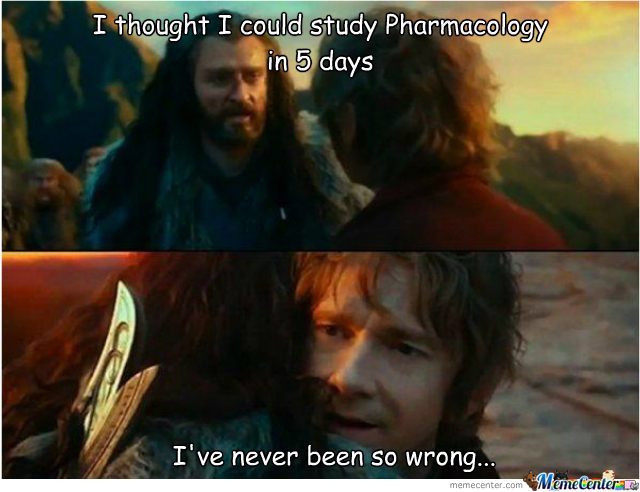
Here are 3rd Year MBBS Pharamacology questions that we hope you will find useful while preparing for your 3rd Year MBBS exams and stages. And if you’re from Bolan Medical College, then please take note of these as they’re highly targeted and would easily help you get through the oral exam station and stage of Sir Abid Mastoi (Assistant Professor Pharmacology, BMC).
GOOD LUCK! 🙂
3rd Year MBBS Pharmacology VIVA \ Stage Questions
- PROTEIN BINDING OF: i. Carbamazepine ii. Nalprole Acid iii. Warfarin
- Which of the following is more analgesic: Asprin / Ibuprofen
- How many grams of Asprin are equal to Ibuprofen (Ans: 4mg)
- Which of the following is a more effective anti-emetic drug: Metclopramide / Domeperidone (do not consider Parkinsonism)
- Which drug decreases the function of B-Cells?
- What is MALVIONIC HYDROCHLORIDE?
- What is FERRIC CURTAIN?
- What is the most nephrotoxic Aminoglycoside? Describe the mechanism of nephrotixicity and what type of nephrotixicity does it cause?
- Which Aminoglycosides are used as 2nd Line of treatment drugs in Tuberculosis?
- What happens if the patient takes the following drugs in combination: i. Asprin & Ibuprofen ii. Carbamazepine & Valproic Acid
- Drugs used in Thyrotoxicity excluding Propanolol
- Side effects of AMIDARONE
- Enlist the OPOID ANTAGONIST
- Types of Monoamino Oxidases (M.A.Os)
- What causes Farconi Syndrome? How would you treat it?
- Enlist the pre-anasthetics
- Which is abundant inside the body: T3 or T4? Which is more functional?
- Irreversible effects of Amphotericin?
- What is MONDAY SICKNESS?
- Types of prostaglandins secreted by endothelial cells?
- What is Dopacurry?
- Enlist the calcium sparing diuretics?
- Thiazides act on which channels?
- Loop Diuretics act on which channels?
- Types of Calcium Channels? Mention their distribution?
- Stimulatory and inhibitory effects of MORPHINE?
- Mechanism of action and indication of Cyclosirine?
- Name the active metabolite of Pyramethazine?
- Which active metabolite of ISONIAZIDE causes hepatitis?
1gm of Asprin = how much Ibuprofen? - Treatment of Myxedema?
- Percentage conversion of Propanolol of T4 to T3?
- What is Amoxiphin? Give mechanism of action and indications?
- Enlist five D-2 Antagonists that aren’t used as Antisyhcotics?
- Name the post ganglionic sympathetic neurotransmitters other than Acetylcholine?
- What dose of Asprin is “Uricouroic”?
- Distribution of mu and kappa receptors inside the body?
- Gabapentin was initially used as?
- What is HIT? Drugs used for its treatment?
- Low molecular Heparin drugs?
- Anti-coagulent enzymes present in Leach’s Sliva? Name the drugs made from them?
- Dosage of Protamine Sulfate used as Heparin antidote?
- Molecular weight of Heparin?
- Why Atropine is used as an antidote for cholinergic agonist toxicity?
- Can we use Heparin and Warfarin together?
- What are the drugs used for preventing cardiac remodeling?
- Ipratropium and Tiotropium used in Asthma and why?
- Drugs of choice in solid organ cancer?
- Antidompainergic drugs (anti-emetics) not used in Psychosis?
- Difference between typical and atypical antipsychotics?
- Why BETA BLOCKERS cause muscle tremor?
- Nerve supply of A.V and S.A Node?
- Name the calcium channel blockers?
- Difference between Verapamil and Dilitizem?
- Difference between Amlodipine and Nifidipine?
- Wolf parkinsonism
- One line definition of Receptor
- Inhibitors and inducers of Cytochrome P450
- Difference between Carbamazole and Methimazole?
- Which anti-hypertensive drug causes destruction of tastebuds?
- Why T.B drugs are given for 6-9 months? How would you council the patient taking the drugs and what side effects you would mention?
- Which Tuberculosis drug causes orange-red secretions?
- Adverse effects of Phenytoin?
- What is Fetal Hydantoin Syndrome?
- Which anti-hypertensive drug is safe during pregnancy? (Answer: Methyldopa) Why is it considered safe and tell me its mechanism of action?
- Side effects of ACE-Inhibitors
- Uses of Anti-Histamine drugs
- Treatment of Malignant Hyperthermia (Answer: Dentrolene)
- Mechanism of action of Dentrolene
- Why vitamin-B6 is co-administered with Isoniazid?
- Side effects of Aminoglycosides and Cephalosporins?
- Why Cehpalosporins are divided in classes? Which class is most effective Meningitis?
- Mechanism of action of Ergotamine? (Drug used in systemic treatment of migrane)
- Is paracetamol anti-inflammatory or not? And why?
- In what dose Ibuprofen is anti-inflammatory?
- BLACK WIDOW SPIDER VENOME – what does it cause?
- What is Status Epilepticus? Give its treatment.
- What happens if Partial Thromboplastin is more than 5?
- Why Metclopramide is not used as an anti-emetic in Parkinson’s disease patients?
- Which diuretic is also used in Epilepsy?
- Structural similarity of Carbamazepine?
- Uses of Morphine and it’s receptor distribution?
- Name the natural opioids?
- The carbonic anhydrase used in glaucoma?
- Ferritin blocker?
- Iron value in children and humans?
- Calcium channel blockers effects on heart?
- Which NSAID is used in treatment of “Patent Ductus Arteriosis”?
- Contraindications of Ibuprofen?
- Mention the indications of Sodium Valproic Acid?
- Difference between Floroquinolones and Quinolones?
- Parasympathetic neurotransmitter other than Acetylcholine?
- A patient was being treated with ACE-Inhibitors, after sometime the ACE-I were discontinued and Angiotensin Receptor Blockers (ARBs) were started for his treatment? Why?
- Mention six adverse effects of Penecillins.
- Difference between Asprin and Ibuprofen?
- Chlorophencyclidine
- Difference between Entacapone and Tolacapone?
- Adverse effects of Digoxin and it’s antidote name?
- Mechanism of action of Milrinone & Amrinone?
- Digoxin has more side effects than Digitoxin but still it’s more preferred. Why?
- Generations of Histamine Blockers?
- Uses of Quinidine and its side effects?
- 1st, 2nd and 3rd drug of choice in Heart Failure?
- Uses of Lidocaine and why epinephrine is used along with it?
- Drugs used in Cardiac Ischemia?
- Side effects of Ergotism?
- Three indications & contraindications specific for Ibuprofen
- Mechanism of action of Acetaminophen other than COX
- Uses of Salfasalazine other than Colitus and Rehmutoid Arthritis
- Which Sulfonamide was used for burns other than Salfasalaxine and was better in action?
- Sulfonamide used as an eye drop?
- Name the Acetaminophen metabolite causing Hepatitis?

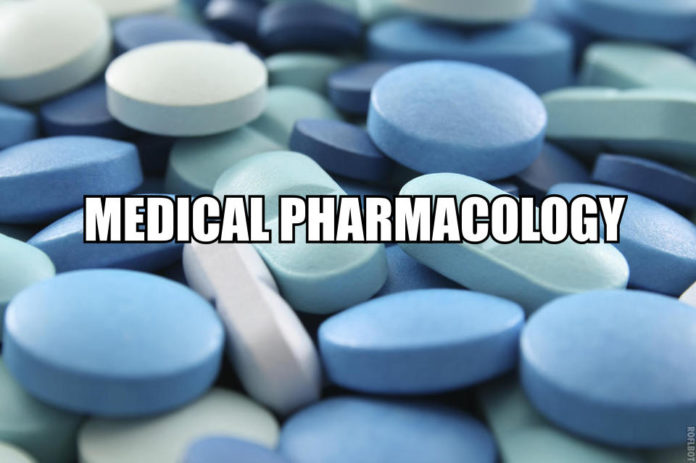
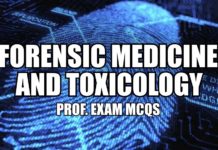
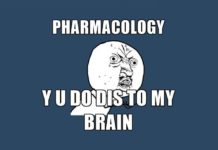
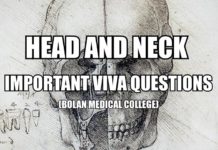
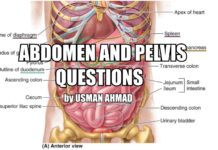
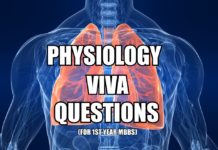

![Gray’s Basic Anatomy with Student Consult PDF Free Download [Direct Link] Gray's Basic Anatomy with Student Consult PDF](https://www.medicosrepublic.com/wp-content/uploads/2022/06/Grays-Basic-Anatomy-with-Student-Consult-PDF-Free-Download-150x150.jpg)
![Textbook of Laboratory and Diagnostic Testing: Practical Application of Nursing Process at the Bedside 1st Edition PDF Free Download [Direct Link] Textbook of Laboratory and Diagnostic Testing Practical Application of Nursing Process at the Bedside 1st Edition PDF](https://www.medicosrepublic.com/wp-content/uploads/2022/11/Textbook-of-Laboratory-and-Diagnostic-Testing-Practical-Application-of-Nursing-Process-at-the-Bedside-1st-Edition-PDF-Free-Download-150x150.jpg)
![The ReMar Review Quick Facts for NCLEX PDF Free Download [Direct Link]](https://www.medicosrepublic.com/wp-content/uploads/2020/03/The-ReMar-Review-Quick-Facts-for-NCLEX-PDF-Free-Download-150x150.jpg)
![Fordney’s Medical Insurance 15th Edition PDF Free Download [Direct Link]](https://www.medicosrepublic.com/wp-content/uploads/2023/02/Fordneys-Medical-Insurance-15th-Edition-PDF-Free-Download-150x150.jpg)
![A Photographic Atlas of Histology 2nd Edition PDF Free Download [Direct Link] A Photographic Atlas of Histology 2nd Edition PDF](https://www.medicosrepublic.com/wp-content/uploads/2023/01/A-Photographic-Atlas-of-Histology-2nd-Edition-PDF-Free-Download-150x150.jpg)
![Kuby Immunology 8th Edition PDF Free Download [Direct Link] Kuby Immunology 8th Edition PDF](https://www.medicosrepublic.com/wp-content/uploads/2022/05/Kuby-Immunology-8th-Edition-PDF-Free-Download-150x150.jpg)
![Art of Drawing the Human Body (Practical Art) PDF Free Download [Direct Link] Art of Drawing the Human Body PDF](https://www.medicosrepublic.com/wp-content/uploads/2023/03/Art-of-Drawing-the-Human-Body-PDF-150x150.jpg)
![Review of Gross Anatomy 6th Edition PDF Free Download [Direct Link]](https://www.medicosrepublic.com/wp-content/uploads/2019/01/Review-of-Gross-Anatomy-6th-Edition-PDF-Free-Download-150x150.jpg)
![USMLE Pharmacology and Treatment Flashcards PDF Free Download [Direct Links]](https://www.medicosrepublic.com/wp-content/uploads/2022/06/USMLE-Pharmacology-and-Treatment-Flashcards-PDF-Free-Download-696x365-1-150x150.jpg)
![Human Anatomy 9th Edition PDF Free Download [Direct Link] Human Anatomy 9th Edition PDF](https://www.medicosrepublic.com/wp-content/uploads/2024/03/Human-Anatomy-9th-Edition-PDF-150x150.jpg)
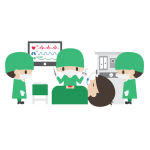
![Coding Notes: Pocket Coach for Medical Coding PDF Free Download [Direct Link] Coding Notes Pocket Coach for Medical Coding PDF](https://www.medicosrepublic.com/wp-content/uploads/2024/04/Coding-Notes-Pocket-Coach-for-Medical-Coding-PDF-Free-Download-1-100x70.jpg)
![NCLEX: Pharmacology for Nurses PDF Free Download [Direct Link] NCLEX Pharmacology for Nurses PDF](https://www.medicosrepublic.com/wp-content/uploads/2024/04/NCLEX-Pharmacology-for-Nurses-PDF-Free-Download-1-100x70.jpg)
![Med Math Simplified 2nd Edition PDF Free Download [Direct Link] Med Math Simplified 2nd Edition PDF](https://www.medicosrepublic.com/wp-content/uploads/2024/04/Med-Math-Simplified-2nd-Edition-PDF-Free-Download-1-100x70.jpg)
![Medical Terminology Made Simple PDF Free Download [Direct Link] Medical Terminology Made Simple PDF](https://www.medicosrepublic.com/wp-content/uploads/2024/04/Medical-Terminology-Made-Simple-PDF-Free-Download-1-100x70.jpg)
Answers to the above questions are available Sir? If yes plz send me by mail I